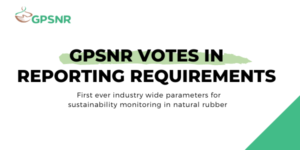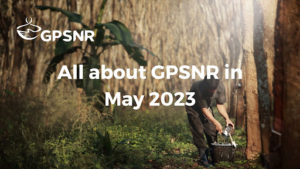We have already had the chance to discuss some updates on the work of the GPSNR Strategy and Objectives working group in our first newsletter in July 2019, available here.
Since then, the Strategy and Objectives Working Group has continued to build out the scope and desired deliverables for the first 3 strategies that GPSNR should implement, namely: 1) Natural Rubber Sustainability Policy Toolbox and Best Practices Guidance; 2) Capacity Building for Smallholders and Rubber Plantations supplying Natural Rubber; 3) Improving Transparency and Traceability within the Natural Rubber Supply Chain.
Strategy 1, “Sustainability Policy Toolbox and Best Practices Guidance”, has now been finalized within the Strategy and Objectives Working Group members. The estimated timeline for the completion of this work has been laid out to ensure that the final approval by the Executive Committee is granted in time, and the deliverables of this strategy can be put forward for consideration by the General Assembly in March 2020. In order to achieve this, the first step will be for the strategy document to be submitted to the GPSNR Executive Committee for approval in August, so that the recruitment to form the sub-working group for Strategy 1 can start as soon as possible.
While the Working Group is still in the initial stages of clarifying the scope for Strategy 2, “Capacity Building”, Strategy 3, “Improving Transparency and Traceability” is under the final revision process by the Strategy and Objectives Working Group members. Once this document is agreed internally, it will be submitted to the Executive Committee for approval. The work on Strategy 3 will also be informed by a study GPSNR plans to commission in the next weeks, to better compare and understand transparency and assurance tools that are currently available, that can be applied to the Natural Rubber supply chain.
The Strategy and Objectives Working Group members are holding bi-weekly catch-up calls to progress the work on these strategies, and ensure that GPSNR has a system that benefits smallholders and and all stakeholders in the natural rubber value chain, adding a credible assurance model which enhances transparency. Every voice is crucial to accomplish this mission, so we welcome you to hop on board and help GPSNR being a better, more inclusive platform. For more information on how to join GPSNR or the Working Groups, contact kobrat@gpsnr.org.






